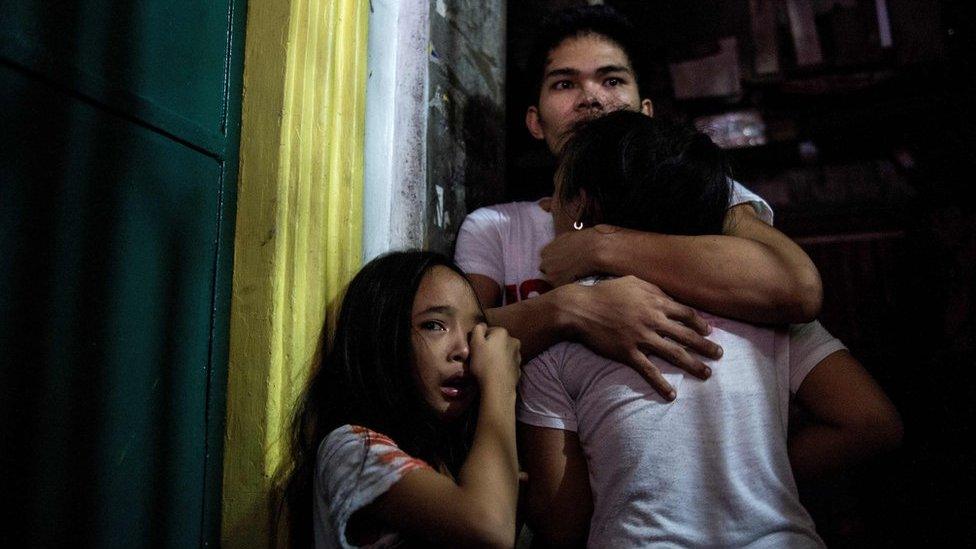Leila de Lima: Top Duterte critic arrested on drug charge
- Published
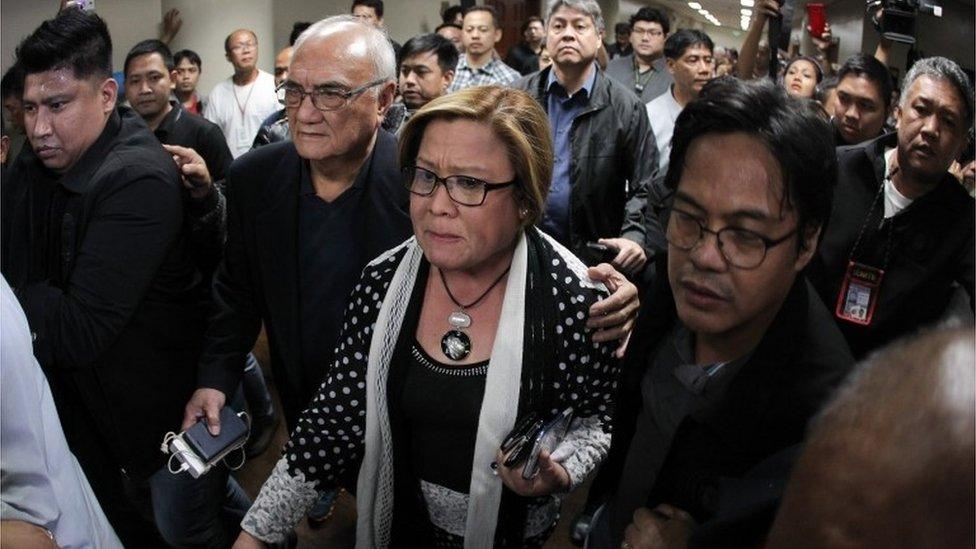
Ms De Lima spent the night in the senate to evade arrest before turning herself over
A leading critic of Philippine President Rodrigo Duterte, Senator Leila de Lima, has been arrested on drug trafficking charges.
Senator Leila de Lima is accused of receiving money from detained drug lords.
She has insisted on her innocence and says the charges are an attempt to silence her criticism of Mr Duterte's war against drugs.
She had spent the night in the Senate in Manila to evade arrest on Thursday.
But on Friday morning she surrendered to police, telling reporters: "It is my honour to be imprisoned for the things I am fighting for.
"They will not be able to silence me and stop me from fighting for the truth and justice and against the daily killings and repression by the Duterte regime."
Ms de Lima's charges stem from when she was a justice minister between 2010 and 2016.
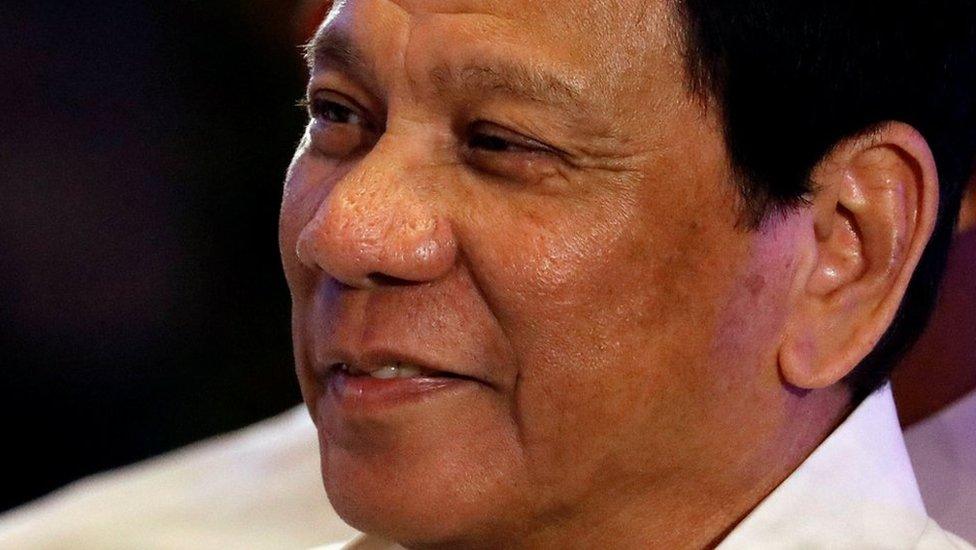
Rodrigo Duterte has called Ms de Lima an 'immoral woman'
She is accused of abetting the drug trade by extorting money from inmates in the notorious New Bilibid Prison, who in turn raised money by trafficking drugs within the jail.
Ms de Lima has been one of the most vocal critics of Mr Duterte and his brutal nationwide drug war, launched in July last year. More than 7,000 people have been killed.
Critics say the president has encouraged police, vigilantes and mercenaries to shoot suspected drug dealers and users on sight, but the president continues to enjoy a high level of support among Filipinos.
Mr Duterte has defiantly defended the crackdown, saying the country is plagued by drugs and that police were only authorised to open fire when threatened by suspects

'Long-standing animosity': Jonathan Head, BBC News, South East Asia correspondent
President Duterte has had Senator Leila de Lima in his sights for a long time.
As head of the human rights commission she launched an inquiry against Mr Duterte's alleged involvement in death squads in Davao, where he was mayor. She also led the Senate hearings into extra-judicial killings after the president started his war on drugs last year.
In August, Mr Duterte called her "an immoral woman", and accused her of involvement in the drug trade, using her driver, with whom she had been having an affair.
Eight prison inmates were brought to the House of Representatives to testify against her - she said they were coerced or induced, and has accused Mr Duterte of being a serial killer.
The long-standing animosity between the president and the senator has inevitably prompted suspicion that her arrest is driven by personal and political factors. Human Rights Watch has condemned the arrest as an act of "political vindictiveness that debases the rule of law in the Philippines".
How her case is handled now will be a test of the much-criticised criminal justice system in the Philippines. Senator de Lima's high profile will ensure there is close international scrutiny.
There will also be heightened interest in how Mr Duterte deals with his few remaining critics inside the political system. He has now been forced to suspend his brutal drug war, and he faces allegations of past involvement in death squads that just won't go away.
Senator de Lima isn't the only one under pressure.

- Published28 December 2016
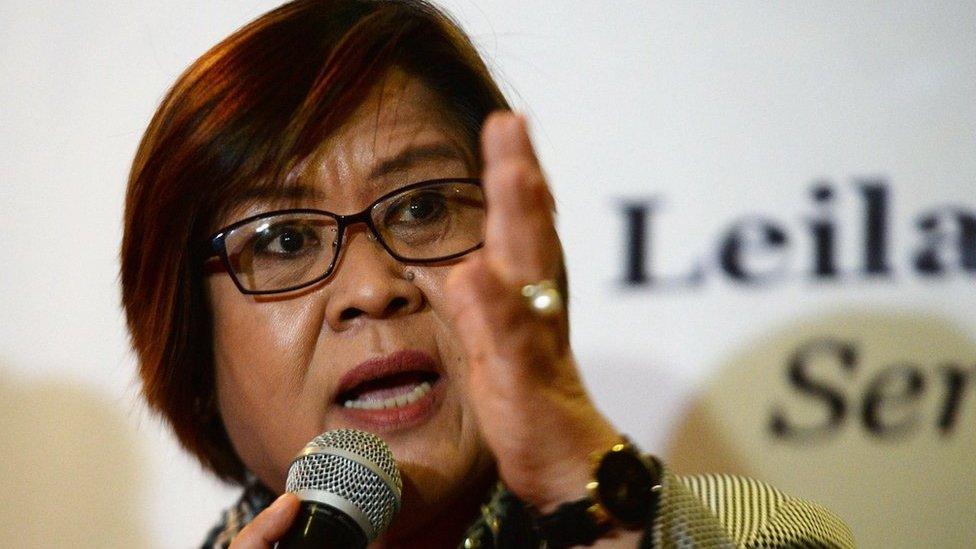
- Published26 August 2016
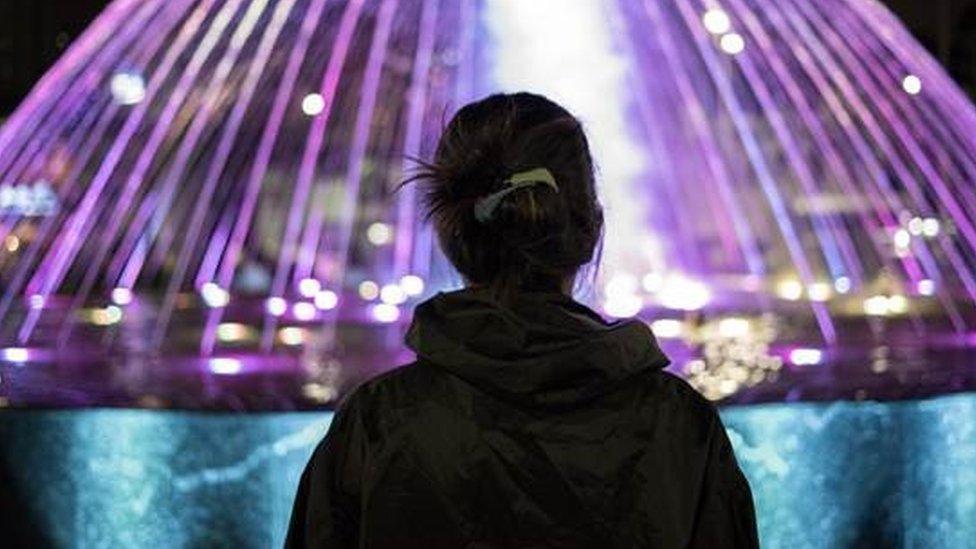
- Published11 March
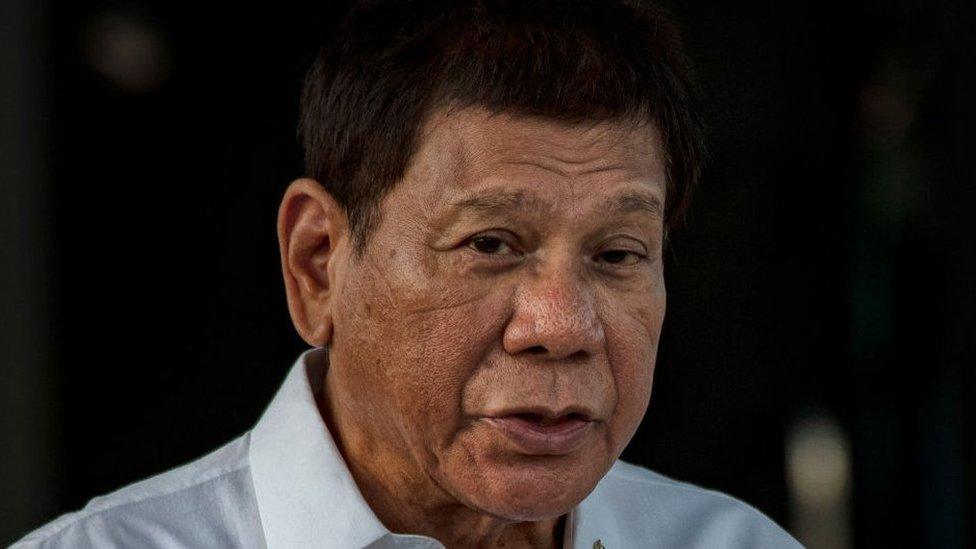
- Published26 August 2016
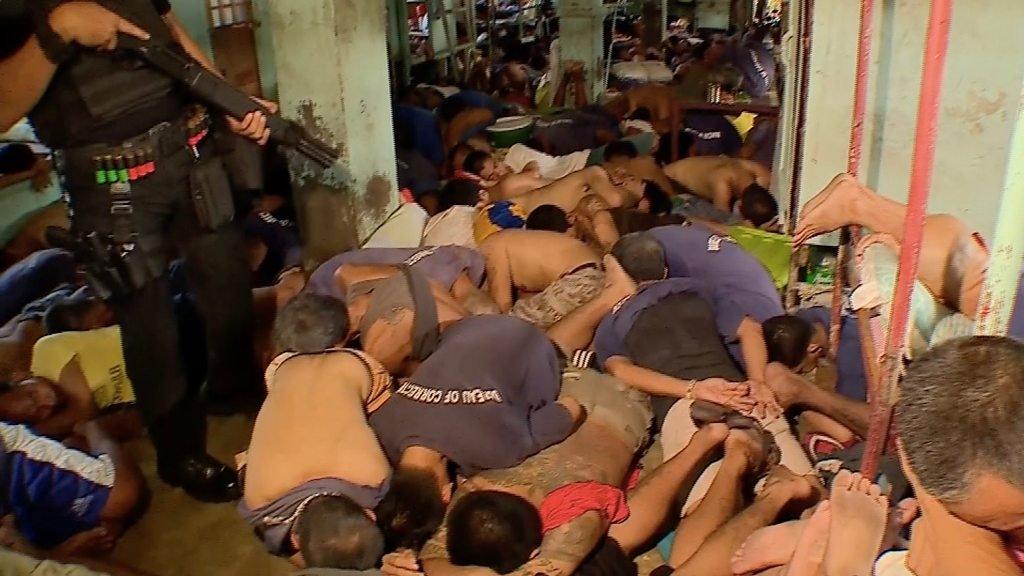
- Published1 February 2017
